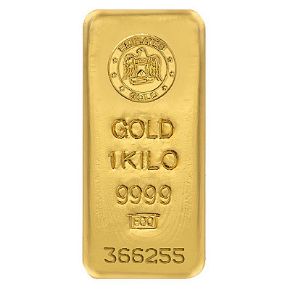
Gold has been a symbol of wealth and financial stability for centuries. Whether you’re looking to diversify your portfolio, hedge against inflation, or preserve your wealth, gold remains a popular investment choice. But with evolving market dynamics and new financial products, you might find yourself asking, “Should I buy gold?” This comprehensive guide will help you understand the benefits, risks, and strategies for investing in gold in 2025.
Why Buy Gold?
Gold is often referred to as a "safe haven asset," meaning it retains its value even in times of economic uncertainty. Here are some key reasons why buying gold might be the right decision for you:
- Hedge Against Inflation: Gold’s value tends to rise when the purchasing power of fiat currencies falls, making it an excellent hedge against inflation.
- Diversification: Gold is a tangible asset that behaves differently from stocks, bonds, and real estate, helping you diversify your portfolio.
- Store of Value: Unlike paper currencies, gold has intrinsic value and has been used as a store of wealth for centuries.
- Liquidity: Gold is highly liquid and can be easily bought, sold, or traded in global markets.
- Economic Uncertainty: Gold often performs well during economic downturns, making it a reliable option in uncertain times.
Types of Gold Investments
If you’ve decided to buy gold, you’ll need to choose the right type of gold investment for your goals. Here are the most common options:
1. Physical Gold
- Gold Bars: Ideal for long-term investors, gold bars are available in various sizes, from 1 gram to 1 kilogram.
- Gold Coins: Coins like the American Gold Eagle, Canadian Maple Leaf, and South African Krugerrand are popular for their portability and recognition.
- Jewelry: While not the most cost-effective option due to high premiums, gold jewelry can serve as both an investment and a personal item.
2. Gold ETFs and Mutual Funds
- Gold ETFs: Exchange-traded funds track the price of gold, allowing you to invest without owning physical gold.
- Gold Mutual Funds: These funds invest in gold and gold-related assets, offering professional management and diversification.
3. Gold Mining Stocks
- Investing in companies that mine and produce gold can provide exposure to the gold market with the potential for higher returns.
4. Digital Gold
- Platforms now allow investors to buy fractional amounts of gold online, which are stored securely in vaults.
5. Gold Futures and Options
- For experienced investors, gold futures and options offer opportunities to speculate on gold’s price movements.
When Should You Buy Gold?
Timing your gold purchase can maximize your returns. While it’s difficult to predict market movements, here are some general guidelines:
- During Economic Uncertainty: Gold often performs well during recessions, financial crises, or geopolitical instability.
- When Inflation is Rising: As a hedge against inflation, gold’s value tends to increase when inflation rises.
- Before Major Currency Depreciation: Gold can protect against the devaluation of fiat currencies.
It’s also a good idea to monitor gold’s spot price and historical trends to identify buying opportunities.
How to Buy Gold
Buying gold is easier than ever, thanks to the variety of options available. Here’s a step-by-step guide to help you get started:
- Decide on Your Investment Type: Choose between physical gold, ETFs, mining stocks, or digital gold based on your goals.
- Set a Budget: Determine how much you want to invest, keeping in mind gold’s current price and premiums.
- Choose a Trusted Dealer or Platform: Buy from reputable dealers or platforms that offer certified and authentic gold products.
- Store Your Gold Safely: If purchasing physical gold, store it in a secure location such as a home safe, bank deposit box, or insured vault service.
Risks of Buying Gold
Like any investment, buying gold comes with risks. Here are some considerations to keep in mind:
- Price Volatility: Gold prices can fluctuate significantly in the short term, so it’s important to focus on long-term goals.
- Storage and Insurance Costs: Physical gold requires secure storage and insurance, which can add to your overall costs.
- Lack of Yield: Unlike stocks or bonds, gold doesn’t generate income, making it less attractive for income-focused investors.
- Market Sentiment: Gold’s performance is influenced by investor sentiment, global events, and central bank policies, which can be unpredictable.
Advantages of Buying Gold in 2025
As we move through 2025, several factors make gold an attractive investment:
- Economic Uncertainty: With concerns about inflation, geopolitical tensions, and market volatility, gold offers a stable investment option.
- Increased Accessibility: Digital platforms and fractional gold purchases have made gold more accessible to small and large investors alike.
- Strong Demand: Gold’s demand continues to rise due to its cultural significance, industrial uses, and central bank purchases.
Should You Buy Gold Now?
The decision to buy gold depends on your financial goals, risk tolerance, and market conditions. If you’re looking for a long-term store of value, a hedge against inflation, or a way to diversify your portfolio, gold is a solid choice. However, it’s important to balance your gold holdings with other assets to create a well-rounded investment portfolio.
Gold Investment Strategies for 2025
If you’re considering buying gold, it’s essential to adopt the right strategy to maximize your returns. Whether you’re a long-term investor or looking for short-term opportunities, here are some effective strategies:
1. Dollar-Cost Averaging
This strategy involves purchasing gold in fixed amounts at regular intervals, regardless of the price. By spreading your investments over time, you reduce the impact of price volatility and avoid the risk of buying at a market peak.
2. Diversify Within Gold Investments
Don’t limit yourself to one type of gold investment. Consider holding a mix of physical gold, ETFs, and mining stocks to balance liquidity, growth potential, and security. For example, physical gold provides stability, while mining stocks can offer higher returns during a bull market.
3. Use Gold as a Hedge
Allocate a portion of your portfolio to gold as a hedge against inflation or market downturns. Typically, 5–10% of your total portfolio in gold is a reasonable allocation, but this can vary based on your risk tolerance and investment goals.
4. Monitor Market Conditions
Stay updated on economic indicators such as inflation rates, central bank policies, and geopolitical events that can influence gold prices. Keeping an eye on these factors can help you time your purchases and sales more effectively.
5. Think Long-Term
Gold is not a "get-rich-quick" investment. Its value tends to appreciate steadily over time, making it ideal for long-term investors who want to preserve wealth and reduce portfolio risk.
Common Myths About Buying Gold
Despite gold's popularity, several myths can deter potential investors. Let’s debunk a few:
"Gold is Only for Wealthy Investors"
Gold is available in a wide range of sizes and forms, from 1-gram bars to fractional coins, making it accessible to all budgets."Gold Doesn’t Generate Returns"
While gold doesn’t pay dividends or interest, its price appreciation over time often outpaces inflation, preserving and even growing wealth."Gold is Obsolete in the Modern Economy"
Gold remains a core asset for central banks, a key industrial material, and a store of value worldwide. Its demand and relevance persist even in today’s digital economy."Gold Prices Always Rise During Crises"
While gold often performs well during crises, its price is influenced by various factors, and short-term dips are possible. This is why a long-term perspective is important.
The Future of Gold Investments in 2025 and Beyond
The future of gold investments looks promising as global trends favor the demand for this precious metal. Key factors driving gold’s appeal include:
- Digital Gold: The rise of digital gold platforms allows investors to own fractions of physical gold without the need for storage. This is making gold more accessible than ever before.
- Central Bank Demand: Central banks continue to increase their gold reserves to reduce reliance on the US dollar and strengthen their economies.
- Industrial Use: Gold’s use in electronics, medical devices, and renewable energy technology is expected to grow, supporting its long-term demand.
- Cultural Significance: In many cultures, gold remains a symbol of wealth, status, and tradition, ensuring consistent demand for jewelry and ornaments.
Tips for First-Time Gold Buyers
If you’re new to buying gold, here are some practical tips to help you get started:
- Start Small: Begin with smaller purchases, such as 1-gram or 5-gram gold bars, to familiarize yourself with the market.
- Research Dealers: Always buy from reputable dealers or platforms that provide certification and secure delivery options.
- Understand Premiums: Be aware of the premium over the spot price, which includes manufacturing and dealer fees.
- Prioritize Security: Ensure you have a secure storage solution before purchasing physical gold.
- Consult a Financial Advisor: If you’re unsure how gold fits into your portfolio, seek professional guidance.
Frequently Asked Questions About Buying Gold
1. Is gold a good investment in 2025?
Yes, gold remains a reliable investment in 2025 due to its role as a hedge against inflation, a store of value, and a portfolio diversifier.
2. What is the best type of gold to buy?
The best type of gold depends on your goals. Physical gold (bars and coins) is ideal for long-term wealth preservation, while ETFs and mining stocks are suitable for liquidity and growth.
3. How much gold should I own?
A common recommendation is to allocate 5–10% of your portfolio to gold, but this may vary based on your financial goals and market outlook.
4. Can I buy gold online?
Yes, many reputable platforms offer online gold purchasing, including physical delivery, secure storage, or digital ownership.
5. Is gold safe during a financial crisis?
Gold is considered a safe-haven asset and often retains or increases its value during financial crises, making it a secure investment choice.
6. Does gold lose value over time?
While gold prices can fluctuate in the short term, its value has consistently risen over the long term, outpacing inflation and preserving wealth.
Final Thoughts: Should You Buy Gold?
Buying gold is a time-tested way to preserve and grow your wealth. Whether you’re looking for stability during uncertain times, a hedge against inflation, or a tangible asset to diversify your portfolio, gold offers a versatile and reliable solution. As we navigate the challenges and opportunities of 2025, gold remains a smart investment choice for seasoned investors and first-timers alike. Take the time to explore your options, choose the right type of gold for your needs, and enjoy the peace of mind that comes with owning one of the world’s most valuable and enduring assets.
NOTE
This Content is the copyrighted content of EE.GOLD. All rights are reserved. You are welcome to share or use our content only by including direct links to our website. Any other form of reproduction, distribution, or use without proper attribution is strictly prohibited.
This Content is intended solely for educational purposes. The information provided does not constitute financial or investment advice.
Please note that Digital Storage Receipt, Secure Storage Solutions, and Physical Gold Sales are the only services offered by EE.GOLD.
We strictly adhere to government regulations and are firmly against all illegal financial or investment activities globally.
For further inquiries, feel free to contact us through our official channels.










.png)

